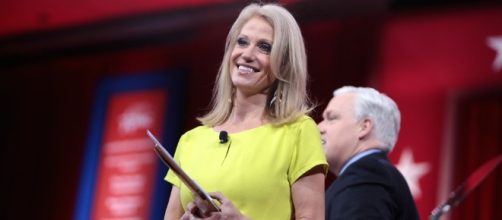The New Administration, beginning with President #Donald Trump , has shown little respect for any opinion that runs counter to its agenda or selections for important positions and particularly from the Press. While it may be normal for there to be differences of opinion between Administration and reporters over issues, the last two weeks has seen an increasing level of open acrimony on the part of the President, particularly towards CNN.
Inauguration, Press Conference and Alternative facts
Clear signs of this intolerance began immediately with a very public war of words between the President and the Press when coverage of his Inauguration stated that crowd numbers were lower than Barack Obama’s Inauguration.
This led to a number of tweets by the newly installed President and then one extraordinary moment during ‘Meet the Press’ when Senior Presidential Advisor #Kellyanne Conway declared that the differences were simply “alternative facts”.
Days later there was another storm with reporters during President Trump’s first press conference when he refused to take any questions from the CNN reporter present for its reporting of the allegations of Russian interference in the presidential election. The justification given by the President was that that the network worked in “fake news”. This antagonism has reached the point that the White House has placed a temporary ban on the network.
Verifiable news and opinion
It is normal for government to place layers of fog on its deliberations and decision making processes. Every day issues are handled that will have drastic effects on individuals, companies and relations with other countries. Any deliberation of matters of Company Law, or even major government appropriations can and do change share prices for the companies involved.
In the same way details of negotiations and decisions on international politics must be kept secret to avoid weakening the country’s position, or even protect allies in particularly delicate situations.
Yet the differences of opinions and the accusations of “fake news” and “alternative facts” have often been over matters that are easily verifiable, such as crowd numbers at the inauguration, or the status of the recent ban of Moslem migrants from seven countries when the statements of White House spokesman Sean Spicer have often been contradicted by the President’s own tweets, or even by recordings of Spicer’s own speeches as recently occurred on a television programme.
The reporting of verifiable facts is very different from opinion pieces in a newspaper and should not and must not be a bone of contention between elected officials and the Press which has the duty to report facts and is also subject to possible legal action for reporting false or misleading information.
To say “six” or “half a dozen” is a difference of how to express numbers and information, but to say whether a glass is half full or half empty is a difference of opinion which is legitimate within the context of reporting. In fact this very vocal and public disagreement that we are now seeing between Press and the White House has real potential to cause damage to both and, even worse, affect the country’s position on the international stage with both allies and friends.
While public disagreements between political parties are a normal part of politics, this level of antagonism between the Administration and the Press can cause real harm to any modern Democracy. The constant accusations of “fake news” during press conferences, or even in tweets, cannot be left unquestioned by the Press, or eventually by the public. Elected officials are ultimately responsible to their citizens and it is the role of the Press to provide the information on which the final judgment is made. Denial of facts or providing “alternative facts” does not address the issues, but put into question the behaviour of the Administration as a whole.

